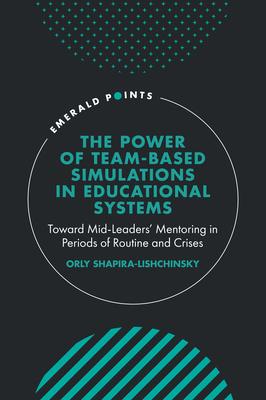Times of crises, such as pandemics, teach us the importance of mid-level leaders who promote effectiveness in teaching and learning in school and act as mediators for their students, teachers and school principals. The Power of Team-based Simulations in Educational Systems focuses on mid-level educational leaders who are not only teachers, but also have a significant role of leadership in their schools.
Shapira-Lishchinsky suggests a new educational policy to reduce educational gaps eliciting from the COVID-19 pandemic and other crises toward routine, enhancing the capacity of mid-level leaders to deal with equality gaps through mentoring by team-based simulation. The Power of Team-based Simulations in Educational Systems proposes strategies to train mid-level leaders toward advancing learning and providing emotional support to their teachers and students during crises and routine.
Exploring the interpersonal, organizational, community, and public policy dimensions of mid-level leadership and teaching, interrogating the relationships between teachers, students, and the school leadership using a socio-ecological model, The Power of Team-based Simulations in Educational Systems is essential reading for teacher trainers, teachers, educational leaders, parents, and education researchers.

 看圖書介紹
看圖書介紹









